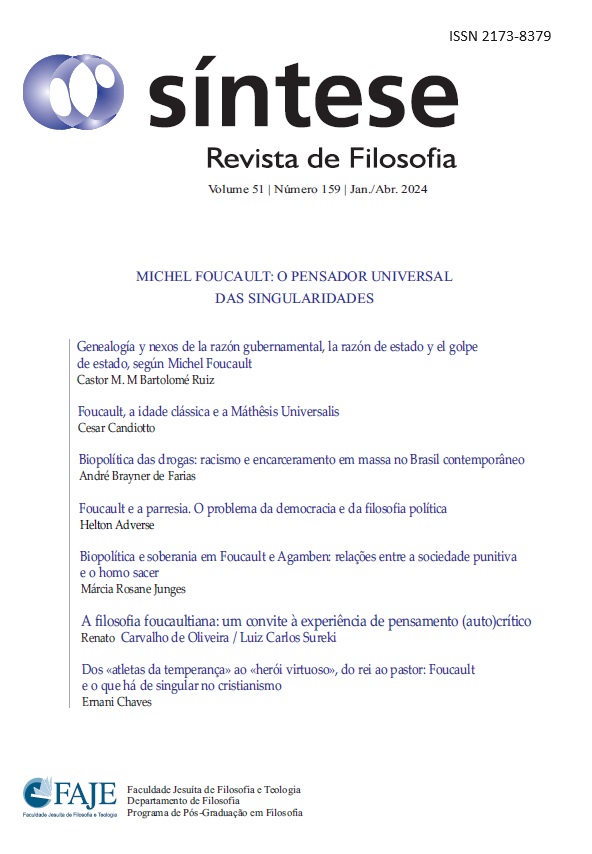BIOPOLITICS OF DRUGS: RACISM AND MASS INCARCERATION IN CONTEMPORARY BRAZIL
DOI:
https://doi.org/10.20911/21769389v51n159p47/2024Abstract
The article proposes an analysis of drug policy in Brazil in light of Michel Foucault’s biopolitical theories. The analysis chooses two aspects of Foucauldian genealogy that are central to understanding the relationship between the war on drugs, racism and mass incarceration: the coextensiveness between war and politics and racism as a population selective device. We understand, however, that Foucault’s perspective is not sufficient for a genealogy of power relations applied to Brazil. It is necessary to adopt a decolonial style critique. In this sense, we invoke the notion of necropolitics, by Achille Mbembe, which we think is more appropriate to the framework of biopolitics produced in our country. With regard to drug policy, we will study the case of marijuana in Brazil. Our main objective is to reveal the interests of Brazilian prohibitionism, understanding the war on drugs as a political failure that, however, proves to be successful in the general framework of Brazil’s historical project.
Keywords: Biopolitics. War on drugs. Racism. Incarceration.


















